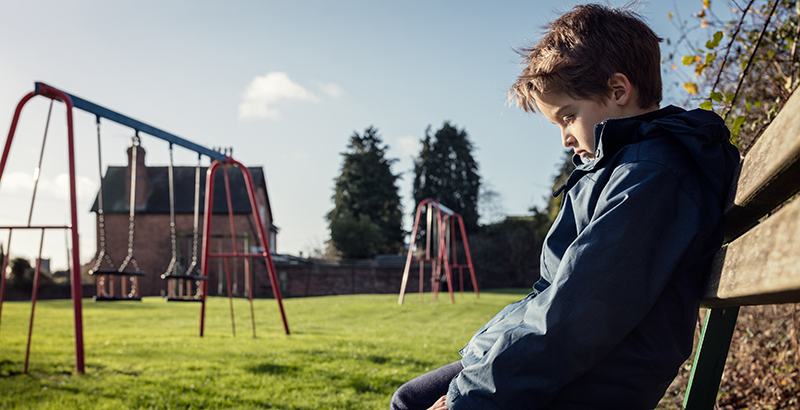In a state well known for its massive, billion-dollar school voucher programs, lawmakers in Florida are looking to give tax dollars for private education to a whole new class of students: bullying victims.
Billed as “Hope Scholarships,” the program would provide private school tuition assistance to students who are victims of bullying, robbery, sexual offenses, or other violence at public schools. If passed, the scholarship would also allow victims to transfer to another public school.
Proponents maintain the legislation — proposed in both the state Senate and House — would offer choices to students trapped in hopeless situations. House Speaker Richard Corcoran, who has dubbed the program a top priority this legislative session, said the scholarships would give bullying victims “hope, dignity, and a real opportunity to succeed.”
To bolster their position, proponents have pointed to state education department data showing that more than 47,000 violent incidents occurred in the public system during the 2015–16 school year. Those incidents include hazing, fighting, and bullying. Federal law requires public schools to address discriminatory harassment, and Florida law requires schools to adopt policies that prohibit bullying.
Opponents decried the proposals as cynical ploys to expand the state’s private school voucher offerings, often at the expense of the very students they’re claiming to help. But Rep. Byron Donalds, a Republican who sponsored the House bill, rejected the notion that the program is “some sort of Trojan horse.”
“I mean, let’s just be clear, the bill does provide options,” he told The 74. “I believe that’s a good thing. I think any parent whose child has been subject to this level of abuse or assault or rampant bullying would also agree that’s a good thing.”
Unlike public schools, private schools often are not required to follow laws that protect students from discrimination based on their religion, sexual orientation, gender, or disability. For example, under Florida’s McKay Scholarship Program, which provides private tuition dollars to more than 30,000 children with disabilities, students waive protections from a federal civil rights law that protects special-needs kids.
Asked whether private schools should be required to accept students who were bullied for their gender identity, Donalds said his legislation would not force institutions to accept the scholarships. If they do choose to accept the money, he said, schools would be free to use the dollars however they wish.
“I have three children,” he said. “When I look for schools, I’m looking for ‘What’s going to be in the best interest of my children?’ As a parent taking my child out of a toxic environment … why would I then try to go play politics in another environment that’s not going to be conducive for my child? That just doesn’t make sense.”
Both the Senate and House bills would allow residents to donate their taxes to the scholarship program when they buy or register a car. While the Senate bill would allow Florida residents to donate up to $20 to the program, on Tuesday the House PreK-12 Appropriations Subcommittee bumped up the contribution cap to $105 in the House bill, an amount Donalds estimates would allow the program to reach about 6,000 students in its first year and cost $40 million.
Although both bills note that school principals are required to investigate bullying allegations, the Senate version says allegations must be “substantiated” in order for bullied students to receive the funding. The House bill would only require principals to notify parents of their options when an allegation is reported.
Several Florida Republicans have expressed their opposition to the legislation — they noted the proposal removes victims from schools while keeping perpetrators in a position where they could harm others — and other leading critics include Democrats, teachers unions, and civil rights groups.
Though the bills are framed through the lens of bullying, Zoe Savitsky, deputy legal director at the Southern Poverty Law Center, called the legislation a “cynical” attempt to expand Florida’s private school voucher options. Instead of providing taxpayer dollars so a student can go elsewhere, she said, lawmakers could work to improve school climate by hiring additional counselors or providing teachers with additional professional development.
Following a series of investigative articles by the Orlando Sentinel, which found that private schools that accept nearly a billion dollars in vouchers operate with little state oversight, several bills proposed tighter accountability.
As the legislation progresses in Tallahassee, Savitsky rejected the idea that the scholarships could provide bullying victims a path out of a desperate situation.
“If the public schools fail a particular child or a particular class of children, parents, administrators, advocates like my organization, the state government, the federal government, any number of actors can come in and demand, under the law, that the public school system does better,” she said. “That capacity simply does not exist in the private system.”
Get stories like these delivered straight to your inbox. Sign up for The 74 Newsletter


;)
